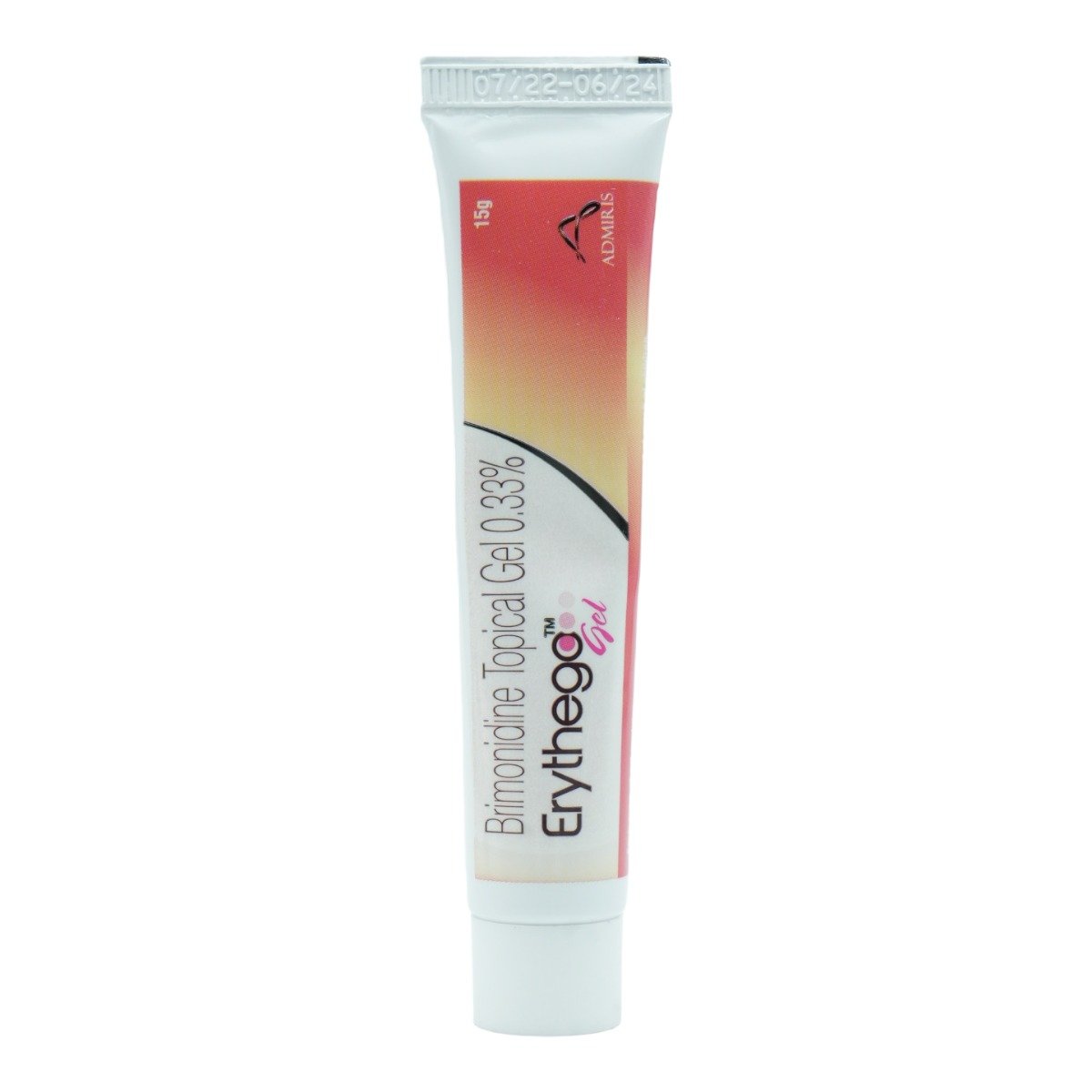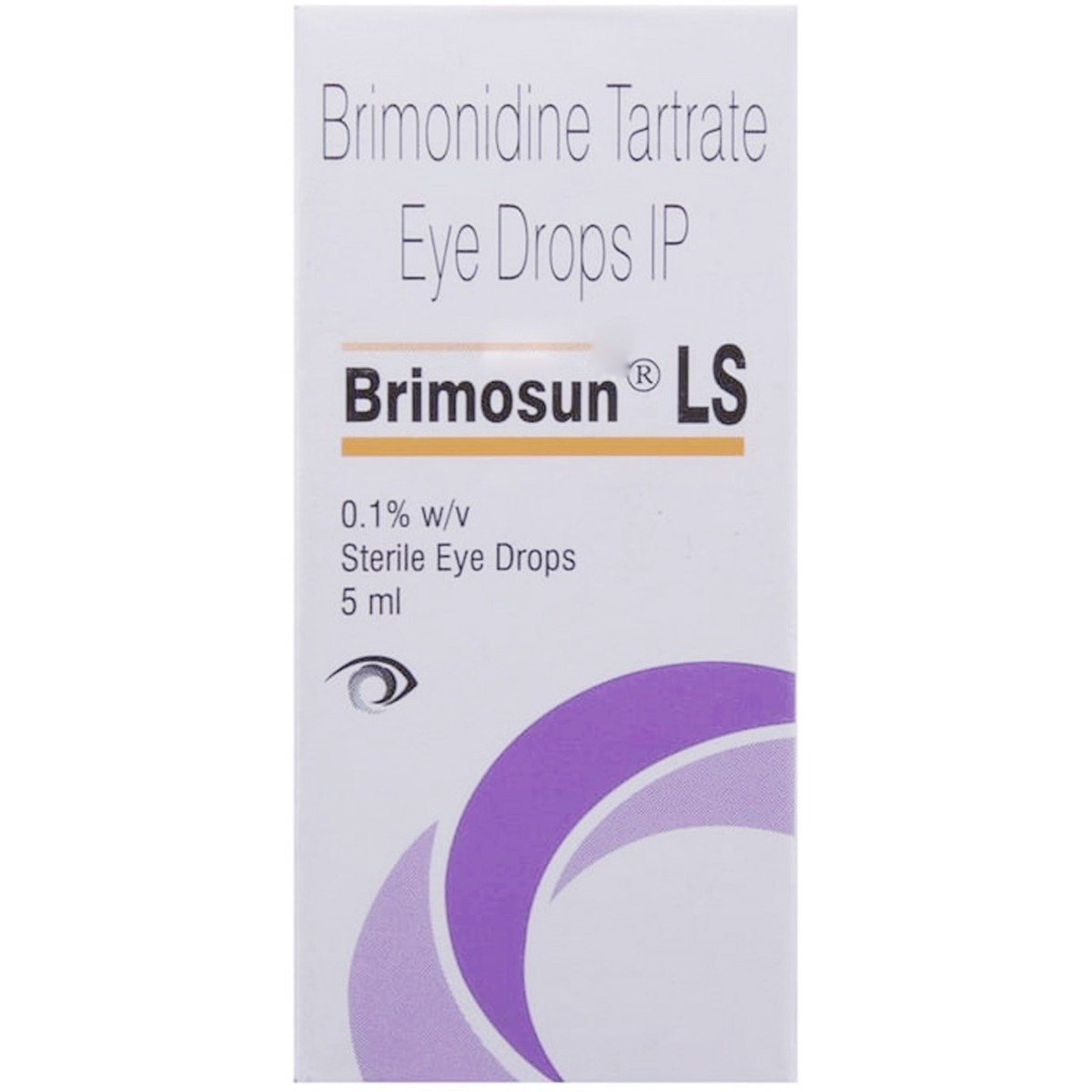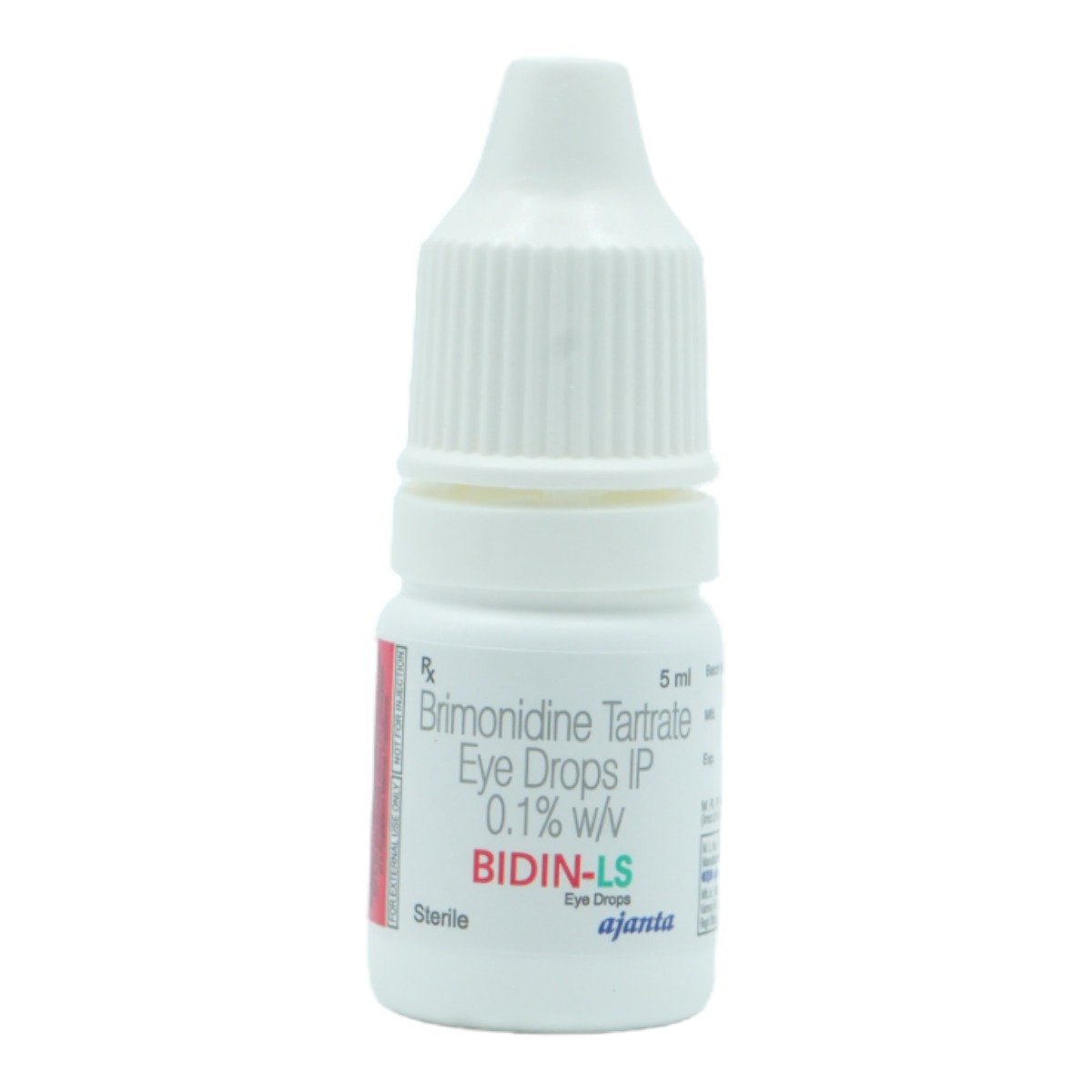Brimonidine
About Brimonidine
Brimonidine belongs to the class of alpha-adrenergic agonists, used alone or in combination with other medicines to lower increased eye pressure in conditions such as ocular hypertension and glaucoma. Glaucoma is an eye disease in which the optic nerve is damaged. This damaged nerve leads to an increase in eye pressure abnormally and can lead to permanent vision loss.
Brimonidine contains Brimonidine that works by decreasing the production of aqueous humour (fluid in the eye). Thereby, Brimonidine helps in reducing eye pressure.
Brimonidine is for ophthalmic use only. In some cases, Brimonidine may cause common side effects such as watery eyes, irritation, abnormal taste, and abnormal vision. Most of these side effects of Brimonidine are temporary, do not require medical attention, and gradually resolve over time. However, if the side effects are persistent, reach out to your doctor.
You are not recommended to stop using Brimonidine abruptly as it may increase eye pressure. Brimonidine is not recommended for children below 17 years as safety has not been established. Avoid alcohol consumption while using Brimonidine. Consult your doctor if you are pregnant or planning for pregnancy before starting Brimonidine. Brimonidine may cause drowsiness, blurred vision or abnormal vision, so drive only if you are alert.
Uses of Brimonidine
Medicinal Benefits
Brimonidine contains Brimonidone which is primarily used in treating increased pressure of the eye in conditions such as glaucoma and ocular hypertension. Brimonidine works by decreasing the production of aqueous humour (fluid in the eye) and reducing eye pressure.
Directions for Use
Storage
Side Effects of Brimonidine
- Watery eyes
- Irritation
- Itchy eyes
- Abnormal vision
Drug Warnings
Do not use Brimonidine if you are allergic to any of its ingredients, if you are taking tricyclic antidepressants or monoamine oxidase inhibitors (MAOIs), or if you are breastfeeding. Inform your doctor if you have/had depression, heart problems, light-headedness, reduced mental capacity, lowered blood supply to the brain, blood vessel disease, poor blood circulation problems, or liver/kidney problems. Brimonidine is not recommended for children below 17years as the safety has not been established. Avoid alcohol consumption while using Brimonidine. Consult your doctor if you are pregnant or planning for pregnancy before starting Brimonidine. Brimonidine may cause drowsiness, blurred vision or abnormal vision, so drive only if you are alert.
Drug Interactions
Drug-Drug Interactions: Brimonidine may have an interaction with monoamine oxidase inhibitor (isocarboxazid, phenelzine, selegiline, tranylcypromine), antidepressants (amitriptyline, amoxapine, clomipramine, desipramine, doxepin, imipramine, nortriptyline, protriptyline, trimipramine), barbiturates (phenobarbital, secobarbital), heart disease medications (digoxin), medicines for mental illness ( chlorpromazine, methylphenidate, reserpine), anti-hypertensives (metoprolol, atorvastatin), and diuretics (furosemide).
Drug-Food Interactions: Alcohol, if taken along with Brimonidine, is known to cause excessive drowsiness and sleepiness. Therefore, avoid alcohol consumption while using Brimonidine.
Drug-Disease Interactions: Inform your doctor if you have or ever had depression, cornea problems, liver or kidney disease, heart problems, or poor blood circulation problems.
Drug-Drug Interactions Checker List:
Safety Advice

Alcohol
unsafeAvoid alcohol consumption while using Brimonidine as it might cause increased drowsiness.

Pregnancy
cautionPlease consult a doctor if you are pregnant. Brimonidine is given to a pregnant woman only if the doctor thinks the benefits outweigh the risks.

Breast Feeding
unsafeBrimonidine should not be used if you are breastfeeding as it may harm the baby.

Driving
cautionBrimonidine may cause blurred or abnormal vision, which can be worse at night time. So, do not drive or use machinery which requires concentration until you feel better.

Liver
cautionIf you have any concerns regarding the use of Brimonidine in patients with liver problems, please consult a doctor.

Kidney
cautionIf you have any concerns regarding the use of Brimonidine in patients with kidney problems, please consult a doctor.

Children
cautionBrimonidine is not recommended for use in children below 17 years as limited clinical studies are available.
Habit Forming
Diet & Lifestyle Advise
- Avoid intake of baked foods such as cakes, cookies, doughnuts, or fried items such as French fries and stick margarine as these foods may worsen glaucoma and damage optic nerve.
- Cut down your coffee intake as it may increase pressure in the eye. Replace coffee with green tea.
- Avoid exercises such as any position where the head is lower than the body as an inverted yoga pose, as it may increase pressure in the eye. Doing selective exercises is advised for glaucoma patients.
Patients Concern
Disease/Condition Glossary
Glaucoma: Glaucoma is an eye condition that causes damage to the optic nerve (essential for good vision) due to abnormally increased pressure in the eye. If it is not treated in time, it may cause blindness. Usually, there are no symptoms of glaucoma initially except the slow loss of vision gradually. However, some symptoms include visible rainbow-coloured circles around bright lights or blurred vision. Rarely, glaucoma can develop suddenly with intense pain in the eye, visual disturbance, or nausea.
Ocular hypertension: Ocular hypertension is a condition caused due to poor drainage of aqueous humour (fluid in the eye that maintains normal pressure by its continuous flow). This leads to the build-up of excess fluid in the eye resulting in increased pressure inside the eye without any damage to the optic nerve. If ocular hypertension is not controlled, it may lead to glaucoma.
FAQs
Brimonidine contains Brimonidine that works by reducing the secretion of aqueous humour (a liquid that maintains normal pressure in the eyeball) and lowers the pressure in the eye.
Brimonidine can be used with other eye medications if advised by the doctor. However, you are recommended to maintain a time gap of a minimum of 5 minutes between using Brimonidine and other eye medications. Administer eye ointments in the last.
Brimonidine may cause temporary blurred vision. Therefore, you are recommended to wait until your vision is clear before driving or operating heavy machinery.
You are not recommended to stop using Brimonidine without consulting your doctor as it may increase pressure in the eyes and may lead to loss of vision. Therefore, use Brimonidine for as long as your doctor has prescribed it and if you experience any difficulty while using Brimonidine, please consult your doctor.
Do not wear contact lens while using Brimonidine unless told by the doctor. Remove contact lenses before using Brimonidine and reinsert them after 15 minutes of using Brimonidine.









